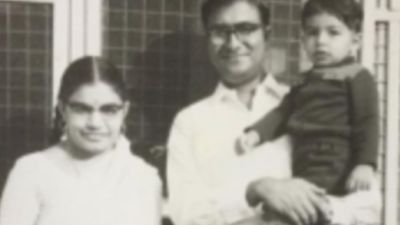Insight
Uganda 50: What was it like being forced out of your home for a new country ?

This year marks an important milestone for Asians from Uganda, because it’s fifty years since President Idi Amin ordered them to leave.
At the time, there were around seventy thousand people of Indian descent in Uganda.
Amin said they were, in his words, ‘milking the economy’ and accused them of corruption and failing to integrate – claims strongly denied by senior Asian leaders.
The dictator, who had a reputation for brutality, was feared and revered.
He made an ultimatum - Asians should be out within ninety days or face dire consequences.
Widespread panic and chaos ensued.
For thousands, the announcement came as a massive shock.
Some thought it was a joke, for others, a life-changing moment that would turn lives upsidedown.
The days, weeks and months that followed were frightening and unnerving.
Long queues began to form outside the British High Commission in the capital Kampala and other embassies.
The arduous task of arranging the necessary travel permits began. Many were citizens of the UK.
Around thirty thousand people arrived in Britain in 1972, the vast majority to cities like London and Leicester.
The story about Uganda is something that is very close to my heart. I was born there in a town called Jinja.
My parents, my sister and I actually moved to London in 1971, the year before the expulsion.
My father told me there was a feeling of unease and uncertainty, and rumours were rife that Idi Amin would eventually force Asians to leave.
I was too young to remember Uganda, but have fond memories of my parentsreminiscing about the ‘good ol’ days’ - picnics in the park, taking long walks around the River Nile and enjoying the beautiful weather that was pleasant all year.
I’m pleased they didn’t have to experience the horrific violence and bloodshed that others witnessed.
Although my family were aware of what happened to countless families, they didn’t talk to my sister and I about the soldiers who raped, kidnapped and killed.
I only began to learn about this when I returned to my birthplace in Uganda ten years ago, to work on a series of reports about the 40th anniversary of the expulsion.
It was an incredible experience to see where I was born and where I spent a short part of my life. It was emotional to visit the school where my father, who was a teacher, taught.
During the trip, I visited some of the beauty spots I had heard about and metbusinessmen who had returned to the country after being expelled.
These were entrepreneurs who made a huge success and were now employingthousands of people.
Uganda suffered crippling financial losses as a result of Idi Amin’s decision - a bombshell that devastated the local and national economy.
The current President, Yoweri Museveni, invited Asians to go back to reclaim their properties and start a new life there.
Only a tiny percentage accepted his offer. I believe for many, it’s a case of once bitten, twice shy. Home is home. Home is Britain.
A decade on, I’ve been speaking to those who are still traumatised by what they went through and say although the years have passed, some of the bitter memories will never fade.
Watch ITV News Central all this week for a series of special reports marking the 50th anniversary of Ugandan Asians being expelled from the country.